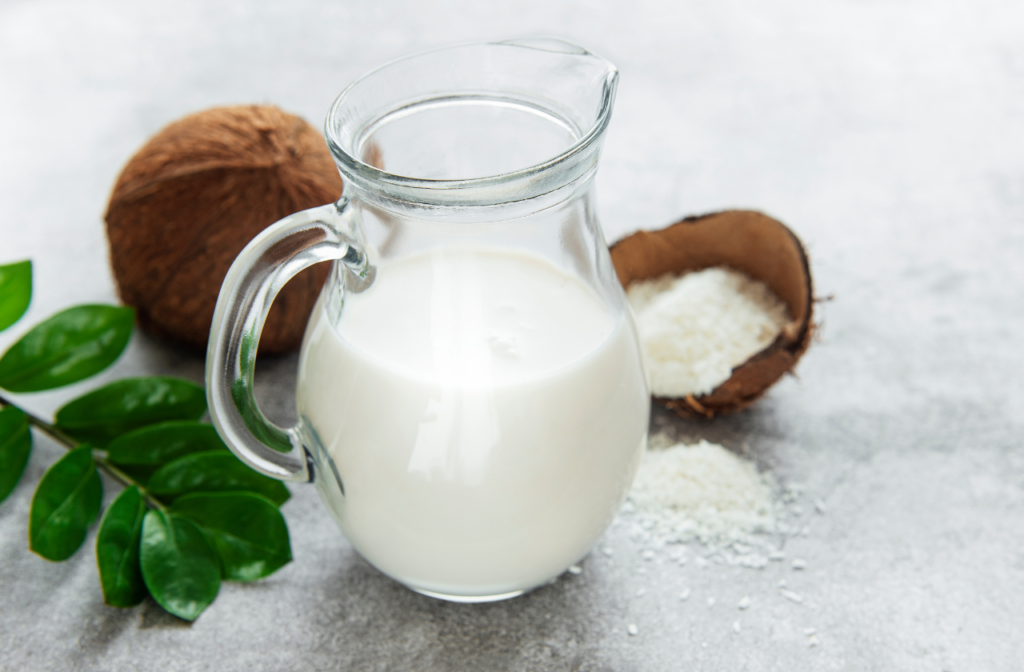Top 5 Milk Alternatives For Coffee
The pursuit of the perfect cup of coffee doesn’t stop at selecting the finest beans or mastering the art of brewing. An equally important aspect, often the subject of much debate and experimentation, is the choice of milk. While traditional cow’s milk has long been a staple in coffee concoctions, a significant shift is underway.
A growing number of coffee enthusiasts, driven by dietary preferences, health considerations, and environmental consciousness, are exploring milk alternatives. This trend is not just about accommodating lactose intolerance or catering to vegan lifestyles; it is also about discovering new dimensions of flavor and texture that can enhance the coffee experience.
Here, we explore the top 5 milk alternatives that are making waves in the coffee community. From protein-rich and allergy-friendly soy milk to environmentally sustainable oat milk, each of these alternatives offers a unique twist to your traditional cup of coffee. Almond milk brings a nutty zest, coconut milk adds a tropical creaminess, and cashew milk offers a velvety smoothness, each transforming the coffee in distinct ways.
1. Soy Milk

Soy milk stands out as a pioneering top 5 milk alternative in the coffee world, particularly esteemed for its nutritional profile and compatibility with various dietary needs, including those of individuals with nut allergies. Its origins trace back to East Asian cuisine, but it has seamlessly made its way into coffee shops around the globe, offering a dairy-free yet flavorful addition to coffee.
What sets soy milk apart is its balanced nutritional content. High in protein yet low in fats and sugars, soy milk offers a health-conscious option without compromising on taste. This makes it an ideal choice for those seeking to maintain a balanced diet while still indulging in their beloved coffee ritual.
Soy milk adds a smooth, slightly sweet note to coffee, complementing both the boldness of espresso and the subtlety of milder roasts. It does not overpower the coffee’s inherent flavors but rather marries well with them, creating a harmonious blend.
Soy milk’s texture is another reason for its popularity among coffee aficionados. It steams well, making it a suitable choice for a variety of coffee drinks, from lattes to cappuccinos. While it may not foam as luxuriously as cow’s milk, it still provides a satisfactory creaminess that enhances the overall coffee experience.
This milk alternative offers a well-rounded addition to coffee, ticking boxes for health, taste, and functionality. Whether you’re looking for a nutritious alternative or simply want to try something new in your coffee, soy milk stands as a versatile and accessible option.
2. Almond Milk

Almond milk has carved out a significant niche in the world of coffee, beloved for its distinctive taste and health benefits. This nut-based milk, which has enjoyed widespread popularity in coffee shops and households alike, brings a unique nuttiness to the coffee experience, making it a favorite among those looking to add a flavorful twist to their brew.
One of the most appealing aspects of almond milk is its nutritional profile. It’s incredibly low in calories, making it an ideal choice for those mindful of their dietary intake. Additionally, almond milk is low in total fat and contains no saturated fat, aligning well with health-conscious lifestyles. It’s important, however, to choose brands without added sugars to fully benefit from its healthful qualities.
The flavor of almond milk is another key aspect of its popularity. Its subtle yet delightful nutty taste adds a new dimension to coffee without overpowering the natural flavors of the beans. This makes almond milk particularly well-suited for both hot and cold coffee drinks, from classic lattes to iced coffee variations. It can enhance the overall taste profile, providing a delicate balance to the coffee’s inherent bitterness.
It’s worth noting that almond milk’s texture can vary. While some brands offer a creaminess akin to cow’s milk, others might be thinner, impacting the mouthfeel of the coffee. This variability makes it worthwhile to experiment with different brands to find the one that best suits your personal preference.
Almond milk stands out as a versatile and flavorful alternative for coffee lovers. Whether you’re drawn to its health benefits or its unique taste, almond milk offers a delightful change from traditional milk, enhancing the coffee experience in a health-friendly manner.
Weird Coffee Tip: To get the most from your coffee, all it takes is some practice and a little know-how. If you want to make the best coffee possible, take a look at this article:
How To Improve Your Coffee Quickly: Simple Hacks For A Tastier Brew
3. Oat Milk

In recent years, oat milk has emerged as a frontrunner in the alternative milk market, particularly within the coffee community. Its rise to popularity is attributed not only to its creamy texture and pleasant taste but also to its environmental credentials, making it a choice that resonates with eco-conscious consumers.
Oat milk is celebrated for its rich, creamy consistency, which closely mimics the texture of traditional cow’s milk. This quality makes it an excellent option for coffee enthusiasts who crave that smooth, velvety mouthfeel in their beverages.
The natural sweetness of oat milk also complements the flavor of coffee, adding a subtle, creamy undertone without overwhelming the coffee’s own taste profile.
Nutritionally, oat milk is a powerhouse packed with protein and fibers, yet it remains low in saturated fats. This combination makes it a hearty, healthful addition to any coffee drink. Its nutritional similarity to cow’s milk, coupled with the fact that it’s dairy-free, makes it a suitable option for a wide range of dietary preferences, including vegans and those with lactose intolerance.
One of the most compelling aspects of oat milk is its environmental sustainability. It requires significantly less water to produce than almond or soy milk and generates a fraction of the greenhouse gases compared to dairy milk. For coffee drinkers concerned about their ecological footprint, oat milk presents a responsible and sustainable choice.
Oat milk’s combination of a delightful taste, creamy texture, nutritional benefits, and environmental sustainability makes it an increasingly popular choice in coffee circles. Its ability to blend seamlessly with different types of coffee while adding a touch of creaminess has made it a favorite for both home brewers and baristas.
4. Coconut Milk

Coconut milk has carved out its own niche in the coffee world, offering a tropical twist to the traditional coffee experience. Its unique profile, both in flavor and nutritional content, makes it an intriguing option for those looking to diversify their coffee routine.
The first thing that coffee enthusiasts notice about coconut milk is its rich, creamy texture. This characteristic makes it a perfect companion for coffee, especially for those who enjoy a fuller, more robust mouthfeel in their beverages.
Coconut milk’s high-fat content, particularly healthy fats, contributes to this creamy texture, enhancing the overall sensory experience of the coffee.
Coconut milk adds a pleasant, mildly sweet coconut-y note to coffee. This subtle tropical essence can transform a simple cup of coffee into an exotic indulgence, making it a popular choice for specialty coffee drinks. Despite its distinct flavor, coconut milk does not overpower the coffee but rather complements it, allowing the coffee’s own flavors to shine through.
Nutritionally, coconut milk stands out due to its richness in important minerals like calcium, vitamin D, vitamin A, vitamin E, and vitamin B12. For those following a keto diet, its higher fat content compared to other milk alternatives is particularly appealing.
Another notable aspect of coconut milk is its wide availability. It can be found in most stores, making it an accessible option for everyday coffee drinkers.
Coconut milk offers a unique combination of creamy texture, tropical flavor, and nutritional value. It’s a great alternative for those looking to add a new dimension to their coffee, whether for health reasons or simply to enjoy a different taste.
5. Cashew Milk

Cashew milk, a relatively newer entrant in the world of milk alternatives, has quickly gained popularity among coffee aficionados. Its creamy texture and subtle, nuanced flavors make it an excellent choice for those seeking a unique addition to their coffee.
The standout feature of cashew milk is its luxurious creaminess, which closely rivals that of traditional dairy milk. This attribute is particularly appealing to coffee drinkers who prefer a smooth and rich mouthfeel in their beverages. The nutty flavor of cashew milk is less pronounced than that of almond milk, offering a more rounded, subtle taste that enhances the coffee without dominating it.
Cashew milk is nutritionally similar to almond milk but with some notable differences. It typically contains more vitamin K and iron, contributing to its overall nutritional value. Additionally, cashew milk is low in calories, making it a favored choice for those watching their caloric intake. Like almond milk, it’s important to select brands without added sugars to maximize its health benefits.
Cashew milk also shines in its versatility. It works well in both hot and cold coffee drinks and can be a great ingredient in baking for those looking to reduce dairy in their diet. However, it’s worth noting that the production of cashew milk, like almond milk, requires a significant amount of water, which may be a consideration for environmentally conscious consumers.
Cashew milk is an excellent choice for coffee lovers who enjoy the nuttiness of almond milk but desire a creamier texture. Its balanced flavor profile and nutritional benefits make it a worthy contender in the array of milk alternatives available for coffee.
Conclusion
As we’ve explored the top five milk alternatives for coffee – soy, almond, oat, coconut, and cashew milk – it’s clear that each brings its own unique qualities to the coffee table. These alternatives not only cater to a range of dietary needs and preferences but also offer diverse flavors and textures, enriching the coffee experience in distinct ways.
The shift towards milk alternatives in coffee is more than just a trend; it’s a reflection of evolving tastes, health consciousness, and environmental considerations. Whether you’re seeking a nutty twist with almond or cashew milk, a creamy indulgence with oat or coconut milk, or a nutritious boost with soy milk, there’s an alternative out there to suit your coffee style.
The journey through these milk alternatives is about broadening horizons and discovering new ways to enjoy your favorite beverage. It encourages experimentation and personalization, allowing coffee drinkers to tailor their cup to their exact preferences and dietary needs.
So, the next time you reach for a milk alternative to add to your coffee, remember that it’s not just about substituting dairy; it’s about enhancing and personalizing your coffee experience in a way that’s both enjoyable and mindful.







